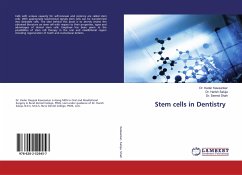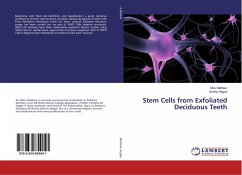During the last decade, stem cell research has emerged at the forefront of innovative technologies poised to revolutionize medicine. Like iron and steel to the industrial revolution, like microchip to the tech revolution, stem cell are the driving force of the next generation regenerative medicine revolution. Stem cells are defined as immature or undifferentiated cells that are capable of generating daughter cells identical to themselves or of differentiating into diverse cellular phenotypes. By the conventional definition, these cells can renew themselves indefinitely through self-renewal and they vary in terms of their location in the body and the type of cells that they can produce and gives rise to more differentiated populations, called the progenitor cells.Stem cell research, however, has remained a highly controversial topic, and important ethical issues remain unresolved. Regardless, stem cell- based therapies continue to evolve and will play an increasing role in addressing the growing need for replacement organs and tissues worldwide.
Bitte wählen Sie Ihr Anliegen aus.
Rechnungen
Retourenschein anfordern
Bestellstatus
Storno








